This article was co-authored by Dale Prokupek, MD and by wikiHow staff writer, Megaera Lorenz, PhD. Dale Prokupek, MD is a board-certified Internist and Gastroenterologist who runs a private practice based in Los Angeles, California. Dr. Prokupek is also a staff physician at Cedars-Sinai Medical Center and an associate clinical professor of medicine at the Geffen School of Medicine at the University of California, Los Angeles (UCLA). Dr. Prokupek has over 30 years of medical experience and specializes in the diagnosis and treatment of diseases of the liver, stomach, and colon, including chronic hepatitis C, colon cancer, hemorrhoids, anal condyloma, and digestive diseases related to chronic immune deficiency. He holds a BS in Zoology from the University of Wisconsin – Madison and an MD from the Medical College of Wisconsin. He completed an internal medicine residency at Cedars-Sinai Medical Center and a gastroenterology fellowship at the UCLA Geffen School of Medicine.
There are 25 references cited in this article, which can be found at the bottom of the page.
wikiHow marks an article as reader-approved once it receives enough positive feedback. In this case, 100% of readers who voted found the article helpful, earning it our reader-approved status.
This article has been viewed 63,208 times.
HIV, or human immunodeficiency virus, is an infection that attacks your immune system and makes it harder for your body to fight other diseases.[1] Being diagnosed with HIV is frightening, but with proper treatment, you can still live a full, healthy life. While there’s no cure for HIV, you can keep it under control and minimize the amount of virus in your body by taking a combination of antiretroviral therapy (ART) medications.[2] You can also reduce your risk of developing complications, such as secondary infections, by taking safety precautions and practicing good home care.
Steps
Getting Medical Treatments
-
1Get tested to determine the stage of your infection. If you’ve been diagnosed with HIV, it’s critical that you start treatment as soon as possible.[3] In order to make sure that you get the best possible treatment, your doctor will likely recommend doing tests to determine how severe your infection is. Ask your doctor about:[4]
- A CD4 T cell count. This test checks your levels of a specific type of white blood cell that is attacked by HIV. If your CD4 T cell count falls below 200, your doctor will diagnose you with AIDS (acquired immunodeficiency syndrome), even if you don’t have any symptoms.[5]
- A viral load test. This test will check to see how much of the virus is in your blood. With HIV medications, you may be able to reduce your viral load to undetectable levels.[6]
- A drug resistance test. Some forms of HIV are resistant to antiretroviral medications. If your doctor determines that you have one of these strains, they’ll choose treatment options that are more likely to work with your particular form of the virus. This test is usually done if there’s evidence that your current drug treatment regimen is not working (such as a very high viral load).[7]
-
2Ask your doctor to check you for complications. Your doctor can run tests to find out if you have any other infections or conditions that often occur along with HIV. If you do have any of these complications, talk to your doctor about the best way to treat them.[8]
- Your doctor may test you for conditions such as tuberculosis, hepatitis, other sexually transmitted infections, urinary tract infections, liver or kidney damage, or toxoplasmosis.
- You can help your doctor identify any potential complications or secondary infections by telling them about any symptoms you’ve been experiencing.
- Your doctor will also recommend that you get lab work done regularly (typically every 3-6 months to once a year) to monitor your overall condition. For example, you will likely need a complete blood count (CBC) every 3-6 months, a basic metabolic panel (BMP) 1-2 months after you start treatment and then every 3-6 months, and a urinalysis once a year.
Advertisement -
3Take antiretroviral medications to control the virus. The most common treatment for HIV is a combination of medications designed to block the effects of the virus. These medications won’t cure your infection, but they can keep it under control, minimize your symptoms, and give you the best possible quality of life.[9] Your doctor will likely recommend a combination of 3 medications, which you will need to take every day for the rest of your life. The most common types of HIV medications include: NNRTIs, NRTIs, and PIs, entry or fusion inhibitors, and integrase inhibitors.[10]
-
4Let your doctor know if you experience side effects from treatment. Unfortunately, HIV medications can have a variety of side effects, some of which may be severe. Let your doctor know if you experience any of these side effects. They may be able to adjust your medications, or recommend other medications or dietary changes that can help keep the side effects under control.[11] The most common side effects include:[12]
- Tiredness
- Nausea, vomiting, or diarrhea
- Headaches
- Fever
- Muscle cramps
- Difficulty sleeping
- Dizziness
Warning: Some HIV medications can have more serious long-term health effects, such as heart disease, liver and kidney damage, and weakened bones. Work closely with your doctor to monitor your reactions to the medication.[13]
-
5Go to regular follow-up appointments with your doctor. While you are being treated for HIV, see your doctor as often as they recommend to monitor your condition and make sure your medications are working properly. When you see your doctor, let them know if there have been any changes in your condition or if you have any questions or concerns.[14]
- Don’t hesitate to call your doctor between regularly scheduled appointments if you have concerns or if your symptoms change or get worse.
- The number and type of medical appointments you’ll need to go to will depend on a variety of factors, like your age, sex, overall health, risk factors for complications, and the stage of your infection.
- In order to make sure your medications are working, your doctor will recommend regular lab tests. These will include HIV RNA tests (to check how much of the virus is present in your blood) and CD4 cell count tests.
- These tests may become less frequent as your treatment progresses. For example, you’ll need to take viral load tests every 4-8 weeks after you first start treatment. Once your viral load becomes undetectable, you'll only need the test every 3-6 months.
-
6Tell your doctor if you are pregnant. Pregnant women with HIV need special care to prevent the virus from being passed to the baby. If you’re pregnant and HIV positive, tell your doctor immediately. They can take measures to keep you and your baby healthy and safe during and after your pregnancy. You can protect your baby before and after birth by:[15]
- Taking antiretroviral medications during your pregnancy as prescribed by your doctor.
- Having a C-section instead of a vaginal birth.
- Using formula to feed your baby instead of breastfeeding.
- Giving your baby antiretroviral medications 4 times a day until they are 6 weeks old.[16]
-
7Look into joining a clinical trial. Clinical trials offer opportunities for you to try new and experimental treatments for HIV. Even if you don’t benefit directly from the trial, your participation may help other people with HIV in the future.[17] Ask your doctor if they can recommend clinical trials in your area.
- You can find a list of clinical trials relating to the treatment of HIV and HIV/AIDS-related complications here: https://hivinfo.nih.gov/understanding-hiv/fact-sheets/hiv-and-aids-clinical-trials.
Preventing Opportunistic Infections
-
1Keep up with your immunizations. If you have HIV, you’re at a higher risk of developing other infections. Since your immune system is weakened, these infections can also put you in danger of developing serious health problems. Ask your doctor about getting vaccines to protect you from infections like the flu, pneumonia, and hepatitis A and B.[18]
- When getting vaccines, make sure your doctor knows that you have HIV. Some vaccines, such as those containing weakened versions of the live virus, are dangerous for people with weakened immune systems.
-
2Practice safe sex. Having safe sex will not only protect your partner from catching HIV, but will also prevent you from picking up other sexually transmitted infections (STIs).[19] To protect yourself and your sexual partner(s):[20]
- Use a condom every time you have sex. If you’re allergic to latex, choose a polyurethane condom.
- Limit the number of people you have sex with. If you have a lot of sexual partners, you’re more likely to pick up an STI or give one to somebody else.
- Avoid drinking alcohol or using drugs before having sex. Using drugs or alcohol can impair your judgment and make you more likely to make risky decisions (like not using a condom).
- Always take your HIV medications while you are sexually active. This will make you less likely to pass an infection to your partner and will also make you less vulnerable to other infections.
Tip: If you’re worried about passing on your HIV infection to a partner, talk to them about getting a preventative medication prescription from their doctor. Your partner can take this medication (called pre-exposure prophylaxis, or PrEP) to make them less likely to catch the disease.[21]
-
3Avoid possibly contaminated food and water. If you have HIV, you’re more likely to develop serious infections from eating foods that are contaminated with bacteria or viruses. To prevent this, be cautious about what you eat and drink. For example:[22]
- Avoid eating raw or undercooked foods.
- Don’t consume unpasteurized dairy products or fruit juices.
- Stay away from raw sprouts, such as alfalfa or bean sprouts.
- Always wash fresh produce, and make sure any equipment or surfaces you use to prepare food are properly cleaned.
- Drink filtered or bottled water rather than tap water or water taken directly from natural sources, such as lakes or streams.
-
4Take care when interacting with pets. Having HIV doesn’t mean that you have to give up on the benefits of animal companionship. However, you do need to be extra careful not to pick up potential infections or parasites from your pets. Always wash your hands thoroughly with warm water and soap after handling your pets, cleaning animal cages, or changing pet litter.[23]
- If possible, ask someone else in your home to take care of cleaning litter boxes or pet cages.
-
5Don’t share needles or other injection equipment. If you use recreational drugs or any other type of drug or medication that is injected with a needle, never share your needles or syringes with another person. Always use a new needle and syringe.[24]
- Sharing needles can put you at risk of getting another infection, such as hepatitis.[25] It can also put other people in danger of catching HIV from you.
Managing Your Condition at Home
-
1Create a daily routine for taking your medication. When you have HIV, it’s very important to take your medication every day in order to keep your infection under control. Skipping your medications can allow your infection to get worse, put you at risk of passing the virus on to others, and increase your risk of developing a drug-resistant strain of HIV.[26] Work on developing a routine to help you stay on top of your daily doses.
- Try to take your medications at the same time each day. To help you with this, you might set an alarm, use a medication reminder app, or ask a friend or family member to help remind you.
- Let your doctor know if you have trouble sticking to your medication routine for any reason, such as difficulty remembering to take the pills, trouble swallowing your pills, or financial problems making it hard to afford your medication. They can give you advice about how to manage these issues.
- Never stop taking your medications, even if you don’t have any symptoms or tests show that your viral load is undetectable. Always talk to your doctor before making any changes to your medication routine.
-
2Eat a healthy diet. Eating well can boost your immune system, raise your energy levels, and even minimize some common HIV medication side effects. Stick to a diet rich in fruits and vegetables, whole grains, and lean proteins (such as fish, white meat poultry, and beans).[27]
- If you’re not sure which foods are healthiest for you, talk to your doctor or a dietitian.
-
3Ask your doctor about trying supplements. Some dietary supplements may be helpful in easing some of the symptoms of HIV. Before trying any supplements, talk to your doctor. Some supplements may interact badly with your HIV medications. Potentially helpful supplements include:[28]
- Acetyl-L-carnitine. This supplement may help ease nerve pain associated with HIV.
- Whey protein. Whey protein may help you gain weight and reduce diarrhea. There’s also some evidence that it can boost your count of CD4 T cells, the immune cells that are attacked by the HIV infection.
Warning: Certain supplements can make your HIV medications less effective. Don’t take garlic supplements or St. John’s wort if you’re being treated for HIV, and let your doctor know before taking any other supplements.
-
4Reach out to your support network. While HIV is much more manageable than it used to be thanks to current advances in medicine, it can still be emotionally, physically, and financially devastating. If you are struggling to cope with your condition, reach out to friends and family for support. You might also benefit from joining a support group or talking to a counselor.[29]
- Many HIV/AIDS clinics offer a variety of support services to their patients, including counseling and practical help with issues like getting to doctor’s appointments and finding financial resources.
Warnings
- With proper management, the levels of HIV in your blood may become so low that they are undetectable in blood tests. While having an undetectable viral load makes it much less likely for you to pass HIV on to a sexual partner, it’s not a guarantee. Always practice safe sex if you’ve been diagnosed with HIV.[30]⧼thumbs_response⧽
References
- ↑ https://www.cdc.gov/hiv/basics/whatishiv.html
- ↑ https://hivinfo.nih.gov/understanding-hiv/fact-sheets/hiv-treatment-basics
- ↑ https://www.cdc.gov/hiv/basics/livingwithhiv/treatment.html
- ↑ https://www.cdc.gov/hiv/testing/index.html
- ↑ https://medlineplus.gov/lab-tests/cd4-lymphocyte-count/
- ↑ https://medlineplus.gov/lab-tests/hiv-viral-load/
- ↑ https://hivinfo.nih.gov/understanding-hiv/fact-sheets/drug-resistance
- ↑ https://www.aafp.org/pubs/afp/issues/2011/0215/p395.html
- ↑ Prokupek, Dale, MD. Personal interview. 16 April 2020.
- ↑ https://www.nhs.uk/conditions/hiv-and-aids/treatment/
- ↑ https://www.hiv.gov/hiv-basics/staying-in-hiv-care/hiv-treatment/tips-on-taking-your-hiv-medication-every-day
- ↑ https://hivinfo.nih.gov/understanding-hiv/fact-sheets/hiv-medicines-and-side-effects
- ↑ https://hivinfo.nih.gov/understanding-hiv/fact-sheets/hiv-medicines-and-side-effects
- ↑ https://www.mayoclinic.org/diseases-conditions/hiv-aids/diagnosis-treatment/drc-20373531
- ↑ https://www.womenshealth.gov/hiv-and-aids/living-hiv/pregnancy-and-hiv
- ↑ https://www.aafp.org/afp/2002/0515/p2061.html
- ↑ https://www.nih.gov/health-information/nih-clinical-research-trials-you/why-should-i-participate-clinical-trial
- ↑ https://www.cdc.gov/vaccines/adults/rec-vac/health-conditions/hiv.html
- ↑ Prokupek, Dale, MD. Personal interview. 16 April 2020.
- ↑ https://hivinfo.nih.gov/understanding-hiv/fact-sheets/basics-hiv-prevention
- ↑ https://hivinfo.nih.gov/understanding-hiv/fact-sheets/basics-hiv-prevention
- ↑ https://www.cdc.gov/hiv/basics/livingwithhiv/opportunisticinfections.html
- ↑ https://www.cdc.gov/fungal/diseases/ringworm/risk-prevention.html
- ↑ https://www.cdc.gov/hiv/basics/hiv-prevention/inject-drugs.html
- ↑ https://www.cdc.gov/hiv/basics/livingwithhiv/opportunisticinfections.html
- ↑ https://www.cdc.gov/hiv/basics/livingwithhiv/treatment.html
- ↑ https://hivinfo.nih.gov/understanding-hiv/fact-sheets/hiv-and-nutrition-and-food-safety
- ↑ https://www.eatright.org/health/diseases-and-conditions/hiv-aids/nutrition-tips-to-keep-the-immune-system-strong-for-people-with-hiv-aids
- ↑ https://www.nhs.uk/conditions/hiv-and-aids/living-with/
- ↑ https://www.hiv.gov/hiv-basics/hiv-prevention/reducing-sexual-risk/preventing-sexual-transmission-of-hiv
About This Article
To treat HIV, start by seeing your doctor and completing testing to figure out what stage your infection is in. Once you know that, you can begin antiretroviral therapy, which will probably include a combination of several medications. Unfortunately, antiretroviral therapy is not a cure, but it does delay the progression of the disease, minimize the risk of transmission to others, and give you the best quality of life. Additionally, be sure to get an annual flu vaccine, since HIV can make it difficult for your body to fight the flu properly. Finally, eat a healthy diet and maintain an exercise routine to keep yourself as strong as possible. For tips on getting emotional support, read on!
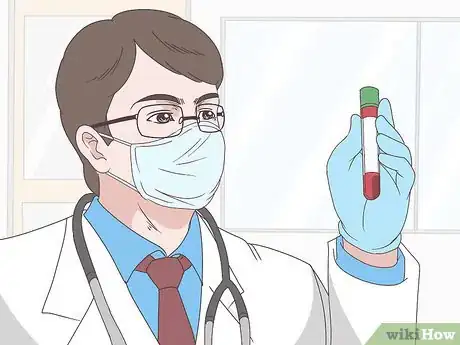
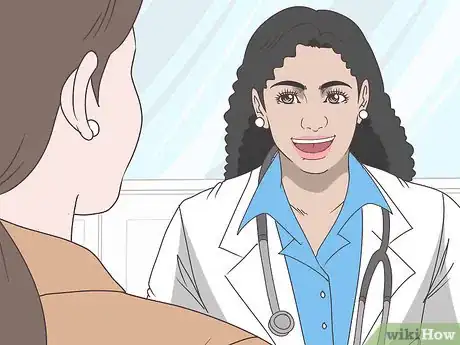
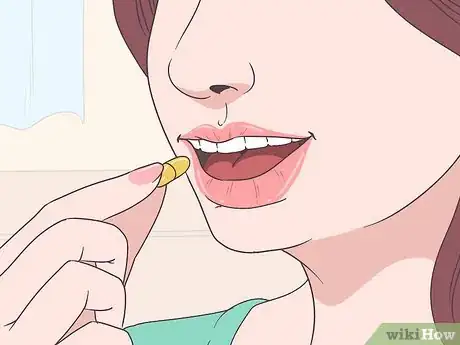
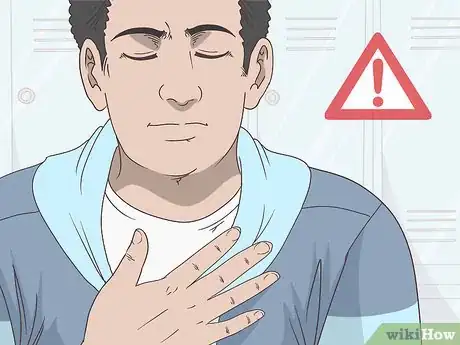
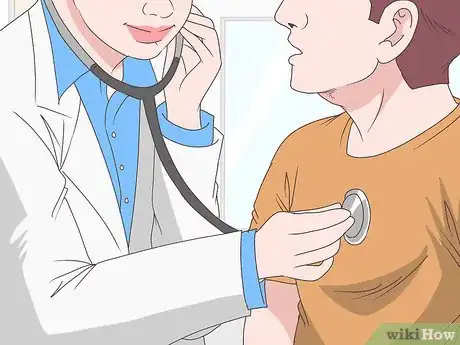

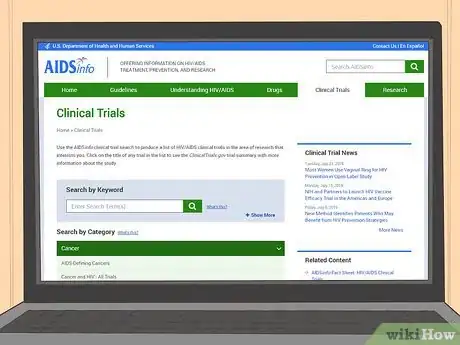
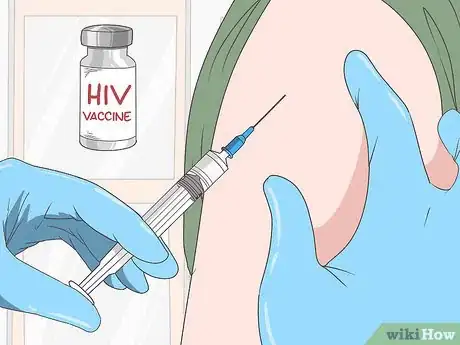
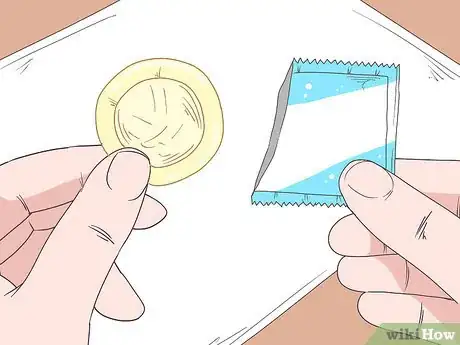
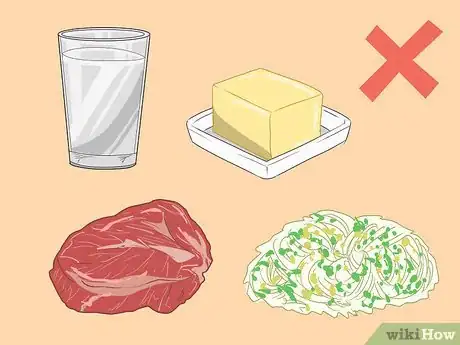

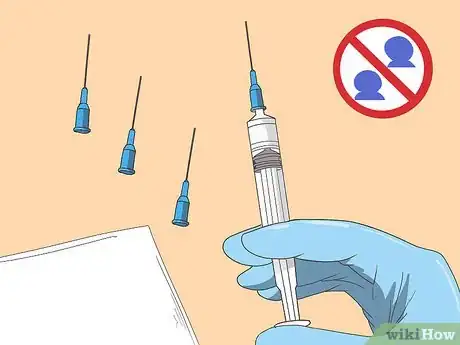
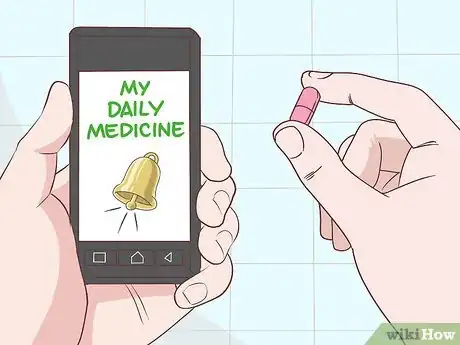

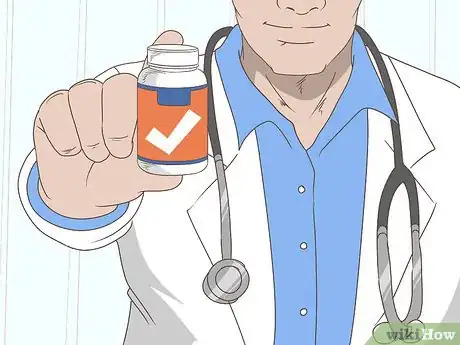
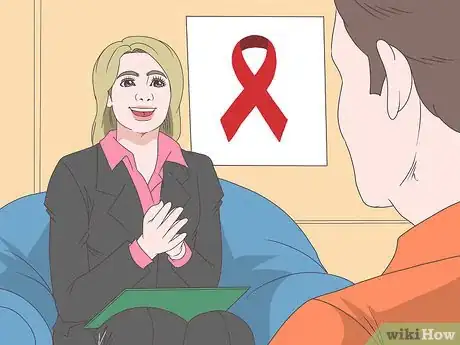



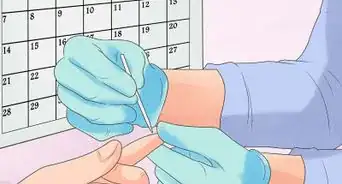













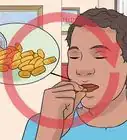
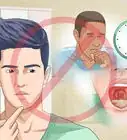

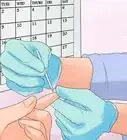



































Medical Disclaimer
The content of this article is not intended to be a substitute for professional medical advice, examination, diagnosis, or treatment. You should always contact your doctor or other qualified healthcare professional before starting, changing, or stopping any kind of health treatment.
Read More...